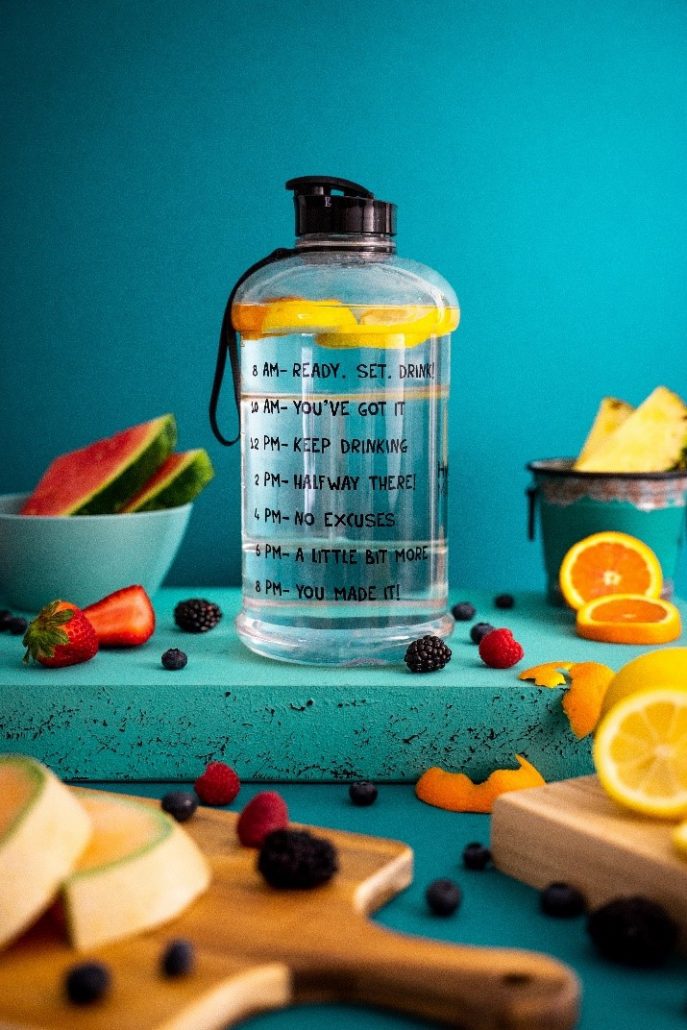How much water should I drink after bariatric surgery?
Dehydration is a significant concern for bariatric patients, as it’s the most common cause of rehospitalization. The recommended amount of water to drink is 64 ounces of water per day. Many people struggle to drink this much water and this becomes more challenging after bariatric surgery. Most patients’ stomachs will only be able to accommodate three ounces of food or water during their immediate recovery. As they acclimate, this increases to 8-12 ounces. Even so, this reduced stomach size makes it difficult to drink enough water while also consuming adequate nutrition. Staying hydrated doesn’t have to be stressful. You can balance your dietary and hydration needs by following these tips:
How to drink enough water after Bariatric Surgery
- Avoid certain beverages. Not all drinks are hydrating, and several will upset your new stomach. Carbonation, caffeine, and other sugary beverages are high in calories and low in hydration. Avoid sports drinks as well, as these are excessively sugar-laden.
- Timing counts. If you drink water before a meal, your stomach won’t have the room to accommodate the food. To eliminate this problem, avoid drinking water 30 minutes before meals and an hour after meals.
- Get a water bottle. Look for a water bottle that shows ounce marks so you can visualize your water intake throughout the day.
- Nix the straws. People tend to drink more than they realize when they use a straw. You may drink more than you mean to, which can cause discomfort and affect your next meal.
- Keep it fresh. Some people don’t like plain water, either for its taste or lack thereof. Try squeezing some lemon or lime into your water to add flavor. You can also add sugar-free zero-calorie flavor packets for a wider variety of flavors.
- Get a food journal. Keeping track of your food and water intake on a food journal app will help you meet your nutrition and hydration goals. You can also notice patterns, such as not drinking enough water during the afternoon.
- Have a plan for the summer heat. Summer weather usually means cookouts, vacations, and other recreational outdoor activities. The summer sun dehydrates you faster than you realize, so you need to take additional precautions for staying hydrated while outdoors.
- Set a timer. If you’re consistently struggling to remember to drink enough water between meals, setting alarms can help. Alarms provide a reminder you can’t ignore, and they can help you establish better hydration habits.
Know the Signs of Dehydration after Bariatric Surgery
It’s easy to misunderstand the signs of dehydration as they can mimic other things. If you notice multiple of the following symptoms occurring, you should recount your water intake for the day to see if dehydration is the culprit.
- Hunger cravings even if you’ve recently eaten. The thirst and hunger responses are similar, and it’s easy to mistake dehydration as hunger pangs.
- Excessive thirst or dry mouth. If you find yourself constantly thinking about drinking water or needing to take more sips than usual, they may be signs you haven’t been drinking enough water throughout the day. The same is true if your mouth feels excessively dry.
- Headaches. Your brain contracts from lack of fluid when you’re dehydrated, which results in a headache.
- Feeling dizzy or nauseous. Dehydration can cause a drop in blood pressure, which causes dizziness and nausea. Vomiting from nausea is particularly problematic, as it further dehydrates you.
- Dark urine. If you’re properly hydrated, your urine will be clear or a very light yellow. If your urine is very yellow, you’re mildly dehydrated. If your urine is dark yellow or brown, you’re not drinking nearly enough water.
Water provides other benefits beyond hydration, such as reducing joint pain, improving the health of your skin, and facilitating proper digestion. You’re likely to have a lot of questions if you’re considering bariatric surgery. Contact us to go over your questions and discuss your weight loss goals.





